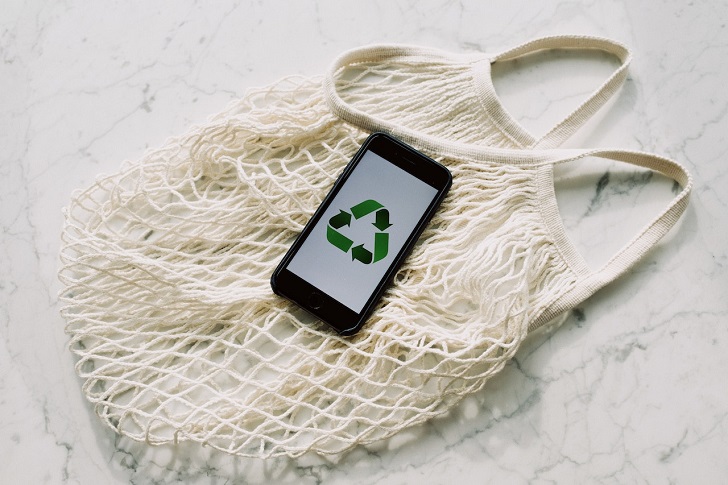
7 Effective Ways to Make Your Business More Sustainable

In an age of rising environmental consciousness, making your business more sustainable isn’t just a trend; it’s a necessity. Sustainable practices contribute to a healthier planet and improve your company’s bottom line.
Consumers are increasingly favoring eco-friendly businesses, and regulatory bodies are tightening environmental standards. Therefore, businesses must adopt sustainable practices. This article will explore seven effective ways to make your business more sustainable.
Environmental Check-Up
Before diving into the world of sustainability, it’s time for a thorough environmental check-up. Think of it as a health check for your business’s impact on the planet. Assess how much energy you’re using, the waste you’re generating, your water consumption, and the carbon emissions your operations produce. This audit is your compass, showing where you need to improve.

Narcisa Aciko/ Pexels | Sustainability is not a choice; it’s a responsibility
Setting Sail With Goals
Once you’ve got a clear picture of your environmental footprint, it’s time to set sail toward specific sustainability goals. These goals need to be like guiding stars—measurable and time-bound. They’ll help you navigate and track your progress effectively as you voyage toward a greener business.
Powering Up With Renewables
Switching to renewable energy sources is like hoisting your sails for a sustainable journey. Consider setting up solar panels, wind turbines, or other clean energy systems to power your business. Not only does this lower your carbon footprint, but it can also steer you toward long-term savings by cutting down those hefty energy bills. Governments often offer incentives and tax breaks for such transitions—treasure chests waiting to be discovered.
Packaging Makeover
For businesses selling physical products, packaging plays a crucial role in the sustainability tale. Opt for eco-friendly materials—packaging that can be recycled, biodegrades naturally, or is made from renewable resources. Trim away excess packaging and use just enough to keep your products safe and sound.
Get creative with packaging designs that use minimal material without compromising product protection. And don’t forget to tell your customers about your sustainable packaging choices—it’s a beacon that attracts eco-conscious consumers.

ready made/ Pexels | We won’t have a society if we destroy the environment
Embark on this journey toward sustainability with these steps—a compass to guide your business toward a greener and more environmentally friendly future.
Embrace Sustainable Supply Chain Practices
Your business’s sustainability doesn’t stop at your doorstep; it extends to your supply chain. Evaluate your suppliers’ practices to ensure they align with your sustainability goals. Choose suppliers prioritizing eco-friendly materials, ethical labor practices, and responsible sourcing.
Collaborate with suppliers to optimize shipping and transportation methods to reduce emissions. Additionally, it explores the concept of circular supply chains, where products and materials are reused, refurbished, or recycled to minimize waste.
Reduce, Reuse, and Recycle
Waste reduction is a fundamental aspect of sustainability. Implement strategies to reduce waste at every stage of your business operations. Encourage employees to use digital documents instead of printing, and provide reusable containers and utensils in the workplace.
Set up recycling bins throughout your workspace, and communicate recycling guidelines to employees. Establish a policy that encourages the reuse of materials and equipment whenever possible. You can lower disposal costs and reduce environmental impact by actively managing waste.

Alexander Suhorucov/ Pexels | 93% of consumers maintained or increased their sustainability purchases in 2022
Promote Employee Engagement
Sustainability isn’t just a top-down initiative; it requires the commitment of your entire workforce. Engage your employees by fostering a culture of sustainability. Offer training and education on eco-friendly practices and encourage employees to contribute ideas and suggestions.
Recognize and reward sustainable behaviors within your organization. For example, you can implement a recognition program for employees who consistently develop innovative sustainability solutions. When employees are personally invested in sustainability, it becomes a part of your company’s DNA.
Track and Report Progress
Establish a system for tracking and reporting your efforts to ensure you’re making meaningful progress toward sustainability. Regularly monitor your key performance indicators (KPIs) related to energy use, waste reduction, emissions, and other sustainability metrics. Share these results with your employees, customers, and stakeholders through transparent reporting.
Publishing an annual sustainability report is an excellent way to showcase your commitment to sustainability and hold your business accountable for its progress. Additionally, third-party certifications, such as B Corp or ISO 14001, can lend credibility to your sustainability efforts.
More in Finance & Business
-
`
Why You Need to Think Twice Before Buying a House
So, you have been scrolling through real estate listings, envisioning your dream kitchen, and even bookmarking paint colors for the nursery....
November 26, 2023 -
`
Santo Spirits: Sammy Hagar and Guy Fieri’s Joint Venture
In the world of business partnerships, some combinations might seem unconventional at first glance. But when you delve deeper into the...
November 16, 2023 -
`
Everything You Need to Know About Mortgage Rate Lock
You have probably embarked on the exciting yet nerve-wracking voyage of purchasing a home. Amidst the sea of paperwork, open houses,...
November 9, 2023 -
`
Housing Market Going Up? Then Why Not Rent?
“Buy a house! It is the best investment!” How many times have you heard that? Probably enough to make a drinking...
October 29, 2023 -
`
Surprising! Celebs Who You Didn’t Know Had a Master’s Degree
When it comes to celebrities, we often associate them with glitz, glamour, and blockbuster movies. But did you know that some...
October 17, 2023 -
`
Navigating the Housing Maze: The 7% Mortgage Rate Quandary
If there is one thing that this year has thrown our way (apart from those fascinating tech gadgets we did not know...
October 12, 2023 -
`
Where to Buy a House in the U.S With a $100K Salary
Got a cool $100,000 annual paycheck in your pocket? Cheers to that accomplishment! With such a financial cushion, dreams of homeownership...
October 6, 2023 -
`
The “Grave” Housing Crisis Forcing U.S. Homeowners to Sell Their Houses
Every culture has its dreams and aspirations. For those living in the United States, it has traditionally been an idyllic house, spacious and...
October 1, 2023 -
`
Why Private Equity is Betting Big on Hollywood
Hollywood has long been a glamorous yet unpredictable industry. But what is new in Tinseltown? Private equity investments. Yes, that is right!...
September 19, 2023















You must be logged in to post a comment Login